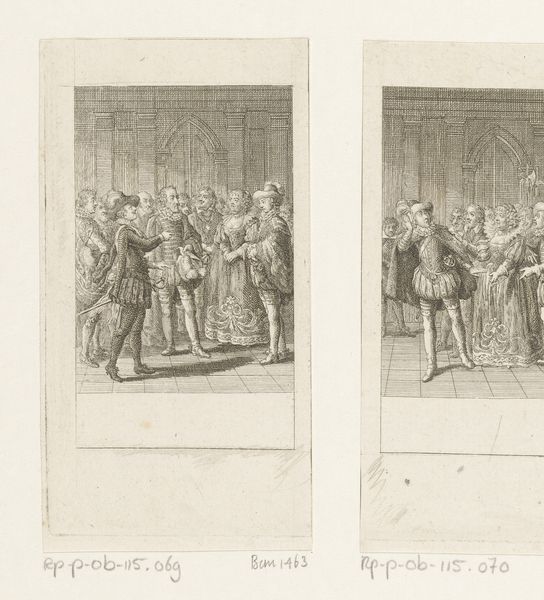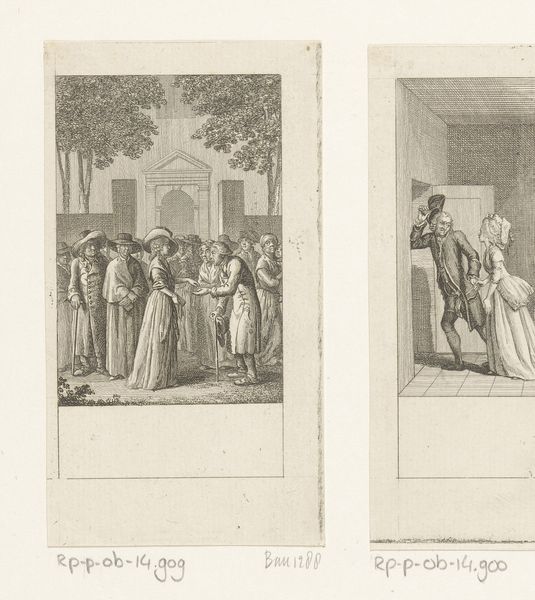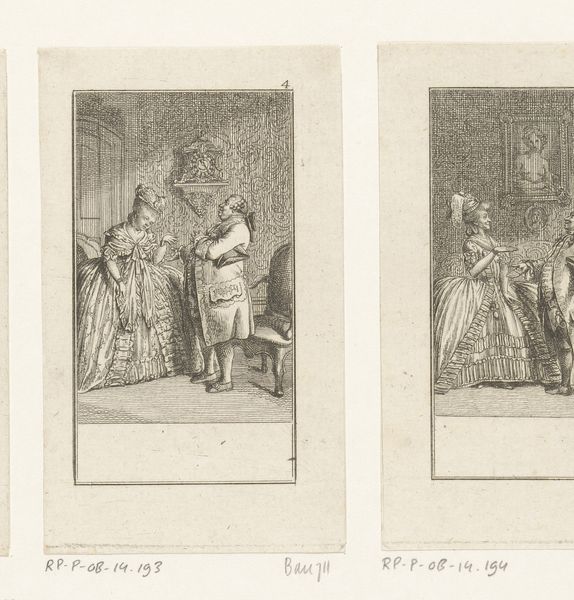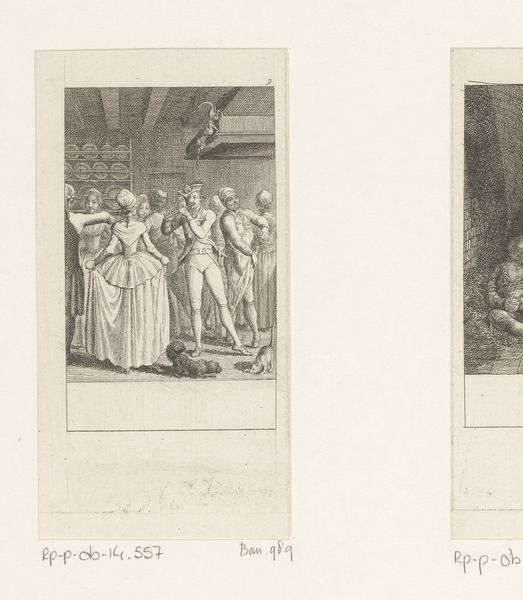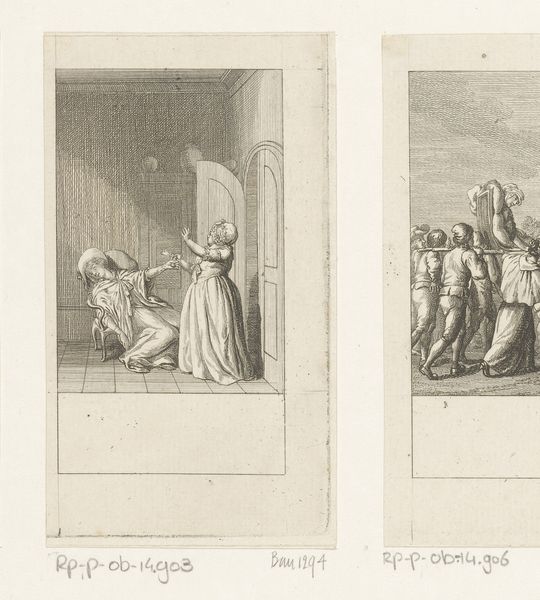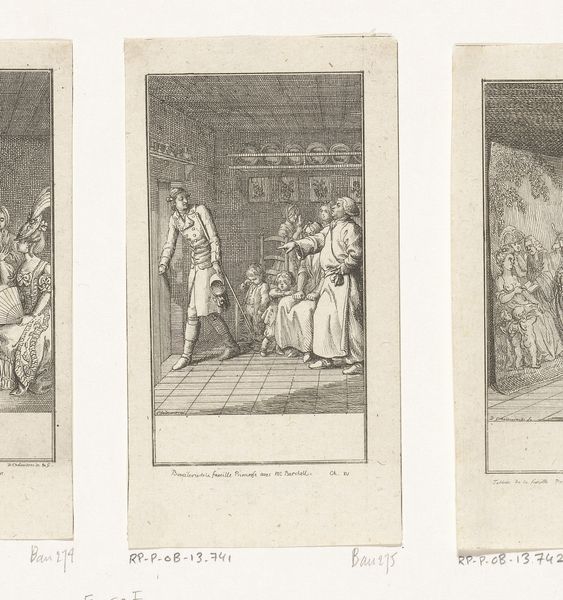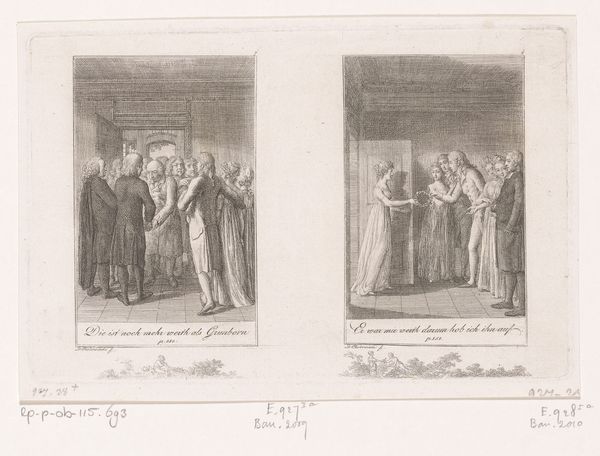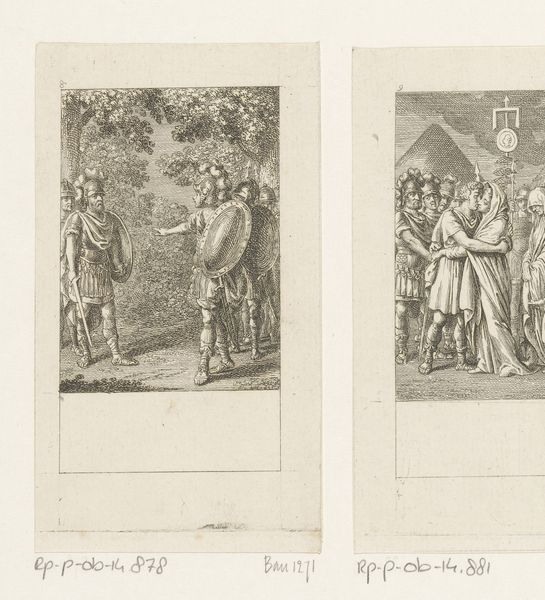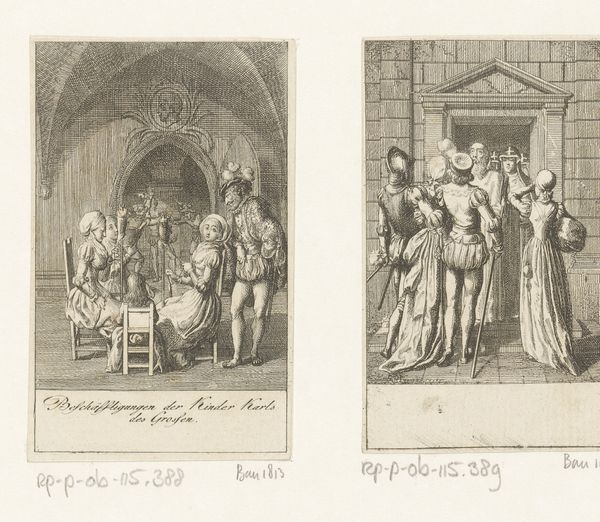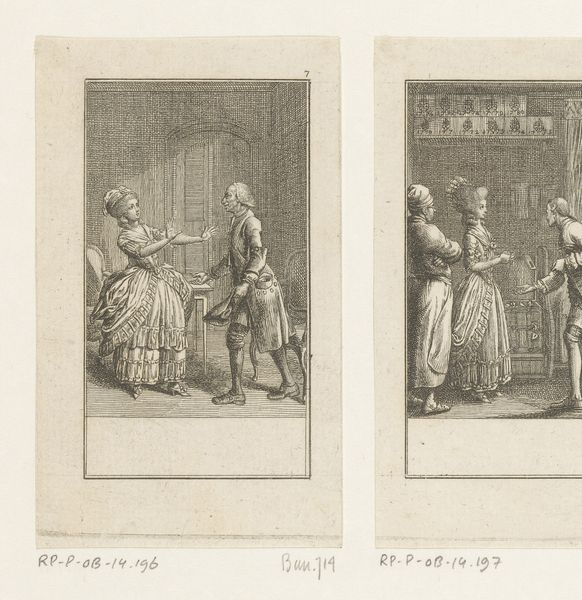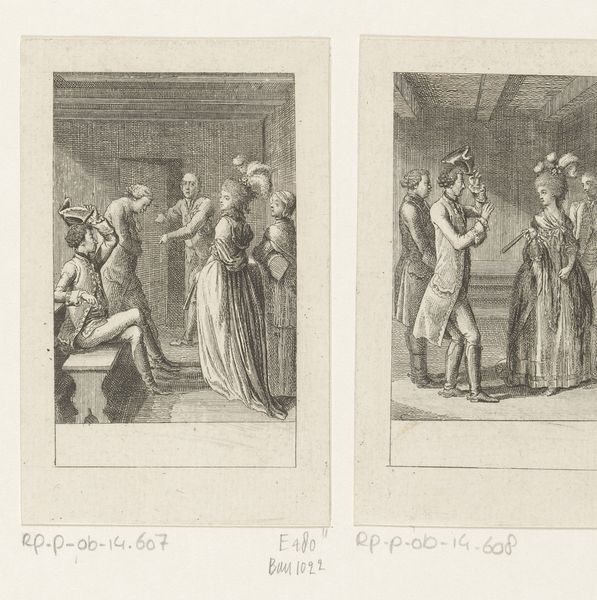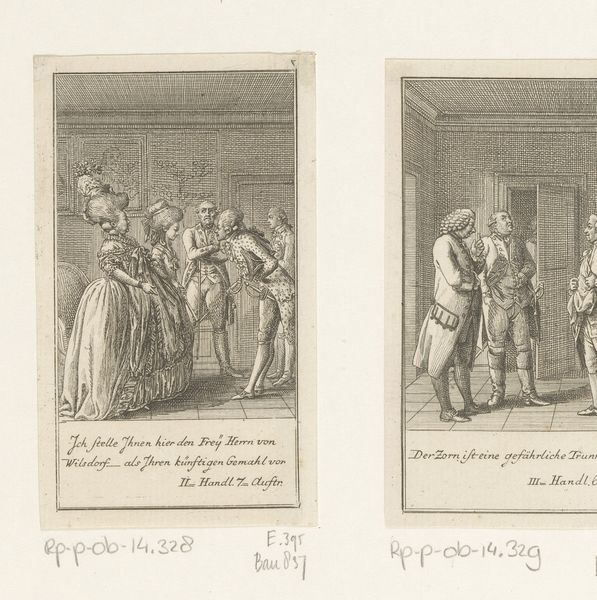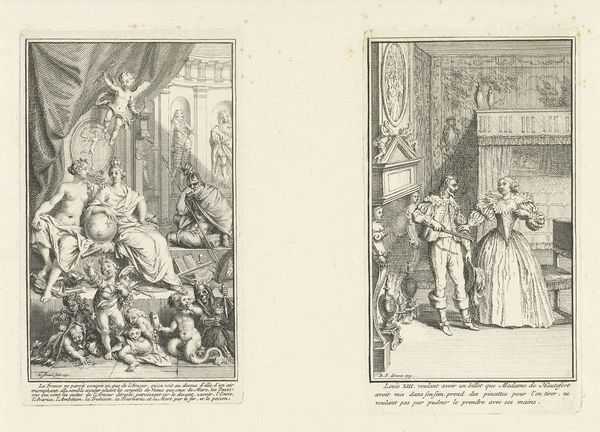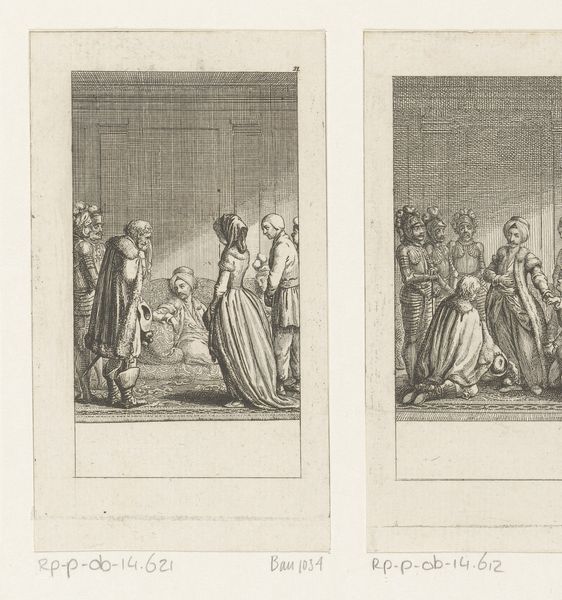
Chérubim staat verkleed als meisje voor Suzanne en de gravin 1785
0:00
0:00
danielnikolauschodowiecki
Rijksmuseum
Dimensions: height 108 mm, width 62 mm
Copyright: Rijks Museum: Open Domain
This engraving by Daniel Nikolaus Chodowiecki depicts a cherub disguised as a girl before Suzanne and the Countess. Made during the late 18th century, it offers a glimpse into the social mores and gender expectations of the time. Chodowiecki, a prominent Berlin artist, frequently engaged with contemporary social issues through his art. Here, the image creates meaning through visual codes of dress and gesture. Set against the backdrop of an aristocratic interior, the scene likely critiques the rigid social structures of the era. The act of disguise raises questions about identity, performance, and the roles individuals are expected to play. Understanding this work requires delving into the cultural history of 18th-century Europe. By examining sources from the period—conduct manuals, fashion plates, and literary texts—we can begin to reconstruct the complex web of meanings embedded in this seemingly simple scene. Ultimately, Chodowiecki’s engraving reminds us that art is always shaped by its social and institutional context.
Comments
No comments
Be the first to comment and join the conversation on the ultimate creative platform.
